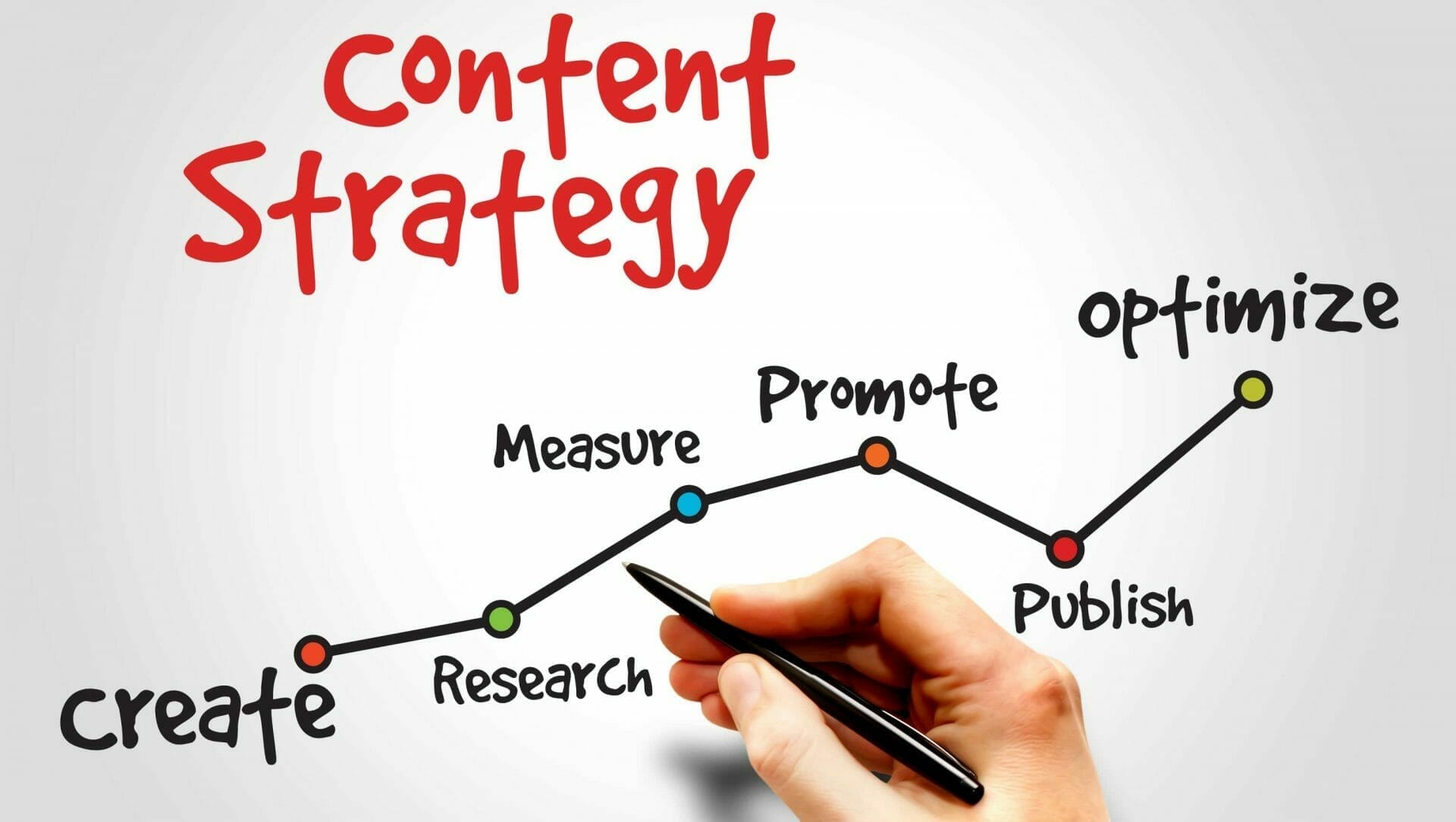Guide To Launching Your ECommerce Content Marketing Strategy
Shopping malls and retail stores are the default meeting place for people or if they need to escape from the heat of the sun. They are convenient in the sense that shoppers immediately know where they are and what they offer. But eCommerce stores do not have such a relationship with their customers. Shoppers do…
Keiran Griffiths | Last updated February 27, 2025

Shopping malls and retail stores are the default meeting place for people or if they need to escape from the heat of the sun. They are convenient in the sense that shoppers immediately know where they are and what they offer.
But eCommerce stores do not have such a relationship with their customers. Shoppers do not have a particular affinity or loyalty to an online store.
The principal factors that determine a sale are:
- If your store has the product that customers are searching for
- If the product prices are competitive
- If you are trustworthy enough to deliver on your promise
These three key elements can be addressed by employing content marketing strategies for your eCommerce website.
With the right ecommerce content marketing strategy, you can personalize the experience with each of your potential and loyal customers, which would influence their decision.
Online shopping is no longer the wave of the future. Everyone is living on the precipice of a revolution in terms of how people make a purchase.
For instance, according to statistics, eCommerce sales in the United States expanded by around 15% in 2019. Another data showed that it would further grow in 2020, as revenues are projected to reach more than $700 billion or an 18% growth. In contrast, the income from physical stores is expected to hit $4.1 trillion, representing a decline of 14%.
The coronavirus pandemic may yet prove to be the death knell of brick-and-mortar stores. With the lockdown measures, people are turning online to shop for food, groceries, clothes, and basic necessities.
LIKE WHAT YOU’RE READING?
If these articles are helpful,
imagine what our team
can do for you!


More Traffic. Leads. Business.
I want to show you how SEO can grow your business in ways you haven’t seen before.
More Traffic. Leads. Growth.

I want to show you how SEO can grow your business in ways you haven’t seen before.
As a result, eCommerce companies are forced to refine their operations, particularly on the supply delivery chain, to keep up with the sudden surge in demand.
But they are also confronted with another challenge–the competition.
More than ever, customers have the power of choice. Their tastes have become more sophisticated, so they are less likely to reward an online store with their loyalty.
You have the unique opportunity to claim your position and entrenched yourself into the consciousness of shoppers.
And it all starts with the right content marketing strategy.
Content Marketing for ECommerce
If you are running an eCommerce store, you will be familiar with three industry terms: traffic, leads, and conversions.
Traffic refers to the number of unique visits to your online shop. Leads are the customers who are potentially looking to engage with the retail store. They have shown an interest in your product and services. Finally, the conversion occurs when the business achieves its goals.
Conversion may be different for everyone. A survey company would be more interested in the respondent filling out the form. Meanwhile, a news agency would be interested in subscriptions, and so on and so forth.
Of course, since you are an online store, the bottom line is to make a sale.
How Content Marketing Can Help
Content marketing is defined as the creation or production of content to drive more traffic, generate more leads, build your brand, and boost your online sales. Content marketing can come in multiple forms like written blogs, podcasts, infographics, newsletters, tutorial videos, webinars, and many more.
Your content marketing strategies should be designed to funnel your target customers to your website and away from the competition.
As you share your content online– in conspicuous places where your target audience can see them– you will create enough digital footprint to make it impossible for them to miss you.
Mapping Out the Content Marketing for ECommerce
The content marketing strategies you implement will depend on the type of eCommerce you are. A business-to-customer online shop will launch a different plan of attack than a business-to-business site.
Here are some examples of content marketing types:
- Written blog
- Video marketing
- DIY tutorial
- Webinar
- Infographic
- Whitepaper
- E-book
- Checklist
- Slideshare
- Online course
- Podcast
- Visual content
- Social media post
- Quiz and test
- Lead magnet
- Email marketing
You may implement one or two strategies to improve your metrics across the board. But it would be a waste of money to invest in each one, especially if they are not going to yield high returns.
The most successful content marketing strategies are those that are tailor-fit to the business goals.
TigerFitness released a case study of its successful video marketing campaign, which contributed to a 60% increase in the number of repeat customers. But what works for TigerFitness may not work for you.
For example, the retail clothing store, Gwynnie Bee, tapped a YouTube influencer to evangelize its brand and develop a niche in the market. As a result, the company generated a six percent click-through-rate.
But trial and error is an expensive endeavour. Thankfully, content marketing agencies now have the tools on hand to narrow down your message to achieve the biggest impact.
Using analytics and machine learning, they can target customers at the start of their online journey, which is when they input the long-tail keywords or the product name on the search engine.
Then it is all a matter of showing them that you have the answer to their most nagging questions.
Benefits of Content Marketing as a Strategy
In general, 7 in 10 marketers believe that content marketing is a proven tool to increase customer engagement and website traffic.
But if you are still not convinced about investing in content marketing for eCommerce, consider these points:
- It will boost your prominence on the search engine results page — In the digital battlefield, Google would be the ultimate battleground. Nearly 9 in 10 begin their online journey with Google. You might have heard about the importance of being on Page 1 on Google’s search engine results page (SERP). And there is a reason for that. For instance, the top five websites on the SERP will corner over 60% of the total market share. When your potential customer searches for your product, you need to be the first website that shows up.
- Improve conversion rates — The lifeblood of the eCommerce website is revenue. Without a steady income stream, you will back up your inventory, cut the number of your personnel, streamline operations, and finally close shop. Websites that use content marketing have an average conversion rate of 3% compared to 0.5% for non-users. There are plenty of ways to improve your conversion rate by optimizing the user experience of your website.
- Funnel leads to your website — Did you know that about 90% of the total Internet activity is generated from the first page of Google? That is a crazy statistic that gives a glimpse into why websites are scrambling to be on page 1 of the SERP. Not everyone can be Amazon. But as of the last report, there are over 1.3 million online stores in the United States alone. Most of those have their own content marketing strategies to secure a prominent seat on Google to drive more traffic and leads to their respective websites. How do you hope to compete if you do not have one?
- Populate your website — Have you ever visited an online store that looks dubious and only because all you see are product images? Unlike with physical stores, creating an impression is everything with eCommerce websites. The customers will decide to engage or log out based on their overall perception of your online shop. Website design can take care of the aesthetics, but you still need to populate your website with content to achieve the desired impact. A product image alone would not generate interest compared to a testimonial video, product description, or a tutorial clip, among others. They will help your customer make an informed decision on which product or service best serves their need.
- Establish expertise and build your brand — Customers engage with companies they trust. Blogging is one of the content marketing strategies that will help cement your expertise and set you apart from your competition. According to one research study, a business that regularly posts blogs will see a 55% increase in the number of visitors and a 97% improvement in inbound links. But how often should you blog? To boost your organic traffic, you should publish short written content 3-4 times a week and long blogs at least four times a month.
Quick Tips to Launching Your Content Marketing Strategy
If you are ready to launch your digital marketing campaign for your eCommerce site, here are some crucial steps you need to consider:
- Study and research the industry — Before you dive headfirst into any digital marketing strategy you should first educate yourself on the terminology and best practices such as “what is SEO content writing?” or “how to write SEO content”.
- Start small and scale up — You need to refocus your resources to strategies that are proven to work. Luckily, there are so many case studies you can learn from so that you can get the most returns from your investment.
- Hire experts — You do not jump in blind if you have no idea about the lay of the land. Instead, you can get in touch with content marketing agencies that can help you map out a successful strategy.
- Highlight your products — You need to put a spotlight on your products so that customers would have a better idea of how your business can help them. For example, you can create a how-to-guide, tutorial video or product demo that will clearly show what your product can do. However, make sure that the content is shareable across multiple platforms for a wider reach.
- Email marketing works — While everyone is scrambling to produce the next viral video, you would be better off reinforcing your fundamentals. While it is not sexy, email marketing generates the highest ROI around when comparing content marketing strategies. For example, for every dollar spent on the campaign, you will potentially earn $44 in returns.
Conclusion
When you are trying to craft content marketing strategies for your eCommerce website, you need to keep it simple at first and then scale afterward. But you also have to be clear about your goals. There is a perpetual tension between short-term profits to long-term sustainability. It is rare for an online store to achieve both without any problems. With the help of a content marketing agency, you have to chart a clear plan of attack by prioritizing the strategy that will help you meet your short-term, medium-term, and long-term goals.
Need Help Creating A Content Marketing Strategy?
Explore the Possibilities with Our Content Marketing Experts
Whether you are just looking for help with website copywriting, need to hire a few extra website content writers to support your marketing department or would like to incorporate Advanced SEO into your online marketing efforts, we can help. Contact someone from our team today and level-up your content marketing: 1-877-563-0459!
Keiran Griffiths
Keiran Griffiths is the President & Managing Director at 1st on the List. He works exclusively out of the Abbotsford head office and has extensive experience helping small and big brands grow their business. His background is in restaurant and hospitality management as well as business development (he started his own property management company in 2014). Up for any challenge, Keiran works with clients to assess their budget and investment capabilities and come up with a marketing solution that will earn them the biggest bang for their buck.
Don’t miss out – get newest posts straight to your inbox!
OTHER ARTICLES WE THINK YOU’LL ENJOY
Partner With Us. Get More Leads.
Stop trying to do it all on your own – reach out to our team and we can discuss marketing strategies that are best suited for your business!
[NO HASSLE, NO PRESSURE, NO WORRIES – JUST MEANINGFUL INSIGHTS]








